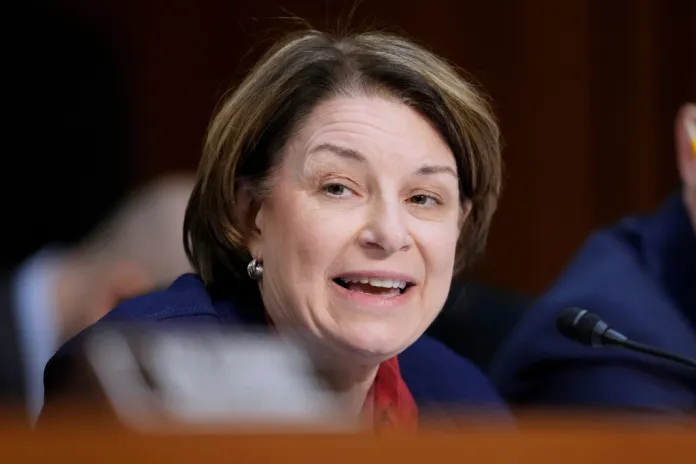After Leftist Smears, NMU Bypasses Strong Presidential Candidate
Scott Beaulier, an accomplished economist and former top candidate for Northern Michigan University’s presidency, faced criticism and a smear campaign that ultimately led to his candidacy being bypassed. The controversy centered on a 2002 paper he co-authored on behavioral economics and welfare policies, which argued that welfare programs, despite good intentions, can sometimes worsen poverty by amplifying individuals’ psychological biases and undermining their decision-making. Critics, notably Andrew Plocher, misrepresented the paper’s analysis as disparaging to minorities and the poor, while ignoring Beaulier’s own background as a first-generation college graduate from a rural community and his strong record serving similar populations.
The paper’s findings align with broader economic research and recent failed universal basic income experiments, suggesting that welfare policies need careful design to avoid unintended harm. Beaulier’s supporters argue that the attacks were unfounded and detrimental to NMU’s presidential selection process. The broader discussion is framed within the challenges facing higher education,including declining enrollment and ideological conflicts,with examples from Florida’s universities illustrating a different approach that prioritizes academic excellence over diversity and inclusion programs. Helen Raleigh, the author of the summary and a commentator on education and economics, emphasizes that universities must choose qualified leaders who can guide them forward despite political pressures.
Scott Beaulier, a notable economist and figure in higher education, was a top candidate for the presidency of Northern Michigan University. However, critics who misrepresented his important work on behavioral economics attacked his candidacy, and in the wake of those attacks NMU chose a different candidate, bypassing Beaulier.
Beaulier co-authored the paper in question, “Behavioral Economics and Perverse Effects of the Welfare State,” in 2002 while he was a Ph.D. candidate at George Mason University. The paper examines how welfare policies have failed to alleviate poverty and, in some instances, have worsened the situation for those they intend to help.
One core principle of behavioral economics is that people are not perfectly rational or self-controlled; more often than not, our decisions are influenced by psychological biases. For example, most drivers mistakenly believe they are better than average, showcasing a judgmental bias rooted in overconfidence. Stressful situations, such as poverty, can exacerbate this tendency, leading individuals to make irrational choices that they would justify due to judgmental bias.
While welfare programs are designed to help, they can unintentionally worsen decision-making. Though these programs provide immediate relief, they may result in long-term negative consequences. For instance, financial assistance for unwed mothers might encourage decisions that will trap young women in long-term poverty.
Therefore, Beaulier and his co-author highlighted the need for policymakers to consider the psychological impacts of welfare to avoid unintended harm. They concluded that “if government assistance to the disadvantaged amplifies the ill effects of their judgmental biases and self-control problems, it strengthens the case for reducing the size of welfare benefits, limiting their duration, restricting eligibility, and even abolition.”
This conclusion reinforces existing economic research (see examples here and here) that shows welfare can ultimately harm those it aims to assist, as it may encourage behaviors that keep individuals in poverty. Recent failures of universal basic income experiments in Canada and Finland further demonstrate that providing money alone does not eradicate poverty; it can lessen motivation to find work. Thus, Beaulier’s paper deserved careful consideration instead of unjust criticism.
Yet Andrew Plocher, a part-time NMU graduate student and self-identified pastor, launched a misguided smear campaign against Beaulier’s candidacy, using selective quotes from a paper more than 20 years old. In his letter to the NMU Board of Trustees, Plocher claimed that Beaulier and his co-author regarded welfare recipients as “behaviorally and cognitively deficient” and viewed issues like alcohol and drug use as “pathologies” tied to poor choices. He argued that these views show disdain for minorities and the poor and asserted that the paper’s conclusions favored limiting the agency of low-income individuals.
These accusations misrepresented the paper’s analysis and were contradictory. By insisting that poverty results solely from “structural injustice,” Plocher diminished the role of individual behavior, effectively telling those in poverty they lack the agency and autonomy to change their lives. This notion is not only incorrect but also disrespectful to Americans who have historically overcome adversity through their own efforts, and especially to those who did so in the worst circumstances.
More than 20 years ago, I came to the United States as a new immigrant with less than $100, speaking broken English with a funny accent. If I had believed Plocher’s claim that my situation was hopeless due to social and structural injustice, I wouldn’t have become a successful entrepreneur and widely published writer in English. My experience shows that in this country, where you start doesn’t define where you end up. People can absolutely better their lives through individual efforts.
Plocher should have investigated Beaulier’s life story before making a baseless accusation that the ideas expressed in Beaulier’s paper could harm NMU’s “first-generation students, rural families, and low-income communities.”
Born and raised in Iron Mountain, a small town in Michigan’s Upper Peninsula, Beaulier is the first in his family to attend college, graduating from NMU and earning his M.A. and Ph.D. in economics from George Mason University. His experiences as a first-generation college student from a rural community give him valuable insight into these communities and the challenges they face.
Furthermore, Beaulier has a proven track record of serving first-generation students, rural families, and low-income communities. In 2016, he became one of the youngest individuals to serve as a business dean, serving as dean of the College of Business and professor of economics at North Dakota State University. He is currently the dean of the College of Business at the University of Wyoming.
Both North Dakota State University (NDSU) and the University of Wyoming serve student populations similar to Northern Michigan University (NMU). There is no evidence that Beaulier disrespects women, minorities, or the disadvantaged. In fact, plenty of evidence shows that students thrive under his leadership. Beaulier’s strong qualifications made him the top candidate for NMU’s presidency, yet he was passed over amid a campaign designed to unjustly torpedo his candidacy.
The landscape of higher education is at a critical juncture as overall enrollment continues to decline. Many American families and students are reevaluating the worth of a traditional college education, particularly after the challenges of remote learning during the pandemic and the rise of “woke” ideologies that often compromise academic rigor. Yet in Florida this trend is being reversed. For instance, the University of Southern Florida is experiencing record enrollment for the summer and fall of 2025.
This turnaround is largely due to Gov. Ron DeSantis’ law restricting state colleges from spending federal or state funds on diversity, equity, and inclusion (DEI) programs. In response, institutions like the University of Florida have dismantled their DEI bureaucracies and redirected resources to enhance academic performance and attract faculty who bring diverse ideas.
Florida’s public universities are steadily improving their rankings. According to the 2025 Best Colleges rankings by U.S. News & World Report, “Florida now has four schools in the top 50 for public universities, second most among all states, and six in the top 100.” This commitment to academic excellence attracts families seeking quality education. Brian Lamb, chair of the board of governors, said, “Florida’s universities continue to prove that prioritizing academic achievement and faculty excellence leads to incredible outcomes.”
Florida’s state universities provide an exemplary model for NMU and other institutions on how to innovate, adapt, and thrive in a competitive landscape. While it’s difficult to measure the leftist smear campaign’s effect on the NMU Board of Trustees, the unfair criticisms of Beaulier’s scholarship and character certainly did the presidential-selection process a disservice. America’s universities will fail to succeed unless they choose leaders based on who is the most qualified candidate and who is best equipped to lead the university into a promising future — regardless of leftist attacks.
Helen Raleigh, CFA, is an American entrepreneur, writer, and speaker. She’s a senior contributor at The Federalist. Her writings appear in other national media, including The Wall Street Journal and Fox News. Helen is the author of several books, including “Confucius Never Said” and “Backlash: How Communist China’s Aggression Has Backfired.” Her latest book is “Not Outsiders: Asian Americans’ political activism from the 19th century to today.” Follow her on Twitter: @HRaleighspeaks.
" Conservative News Daily does not always share or support the views and opinions expressed here; they are just those of the writer."


